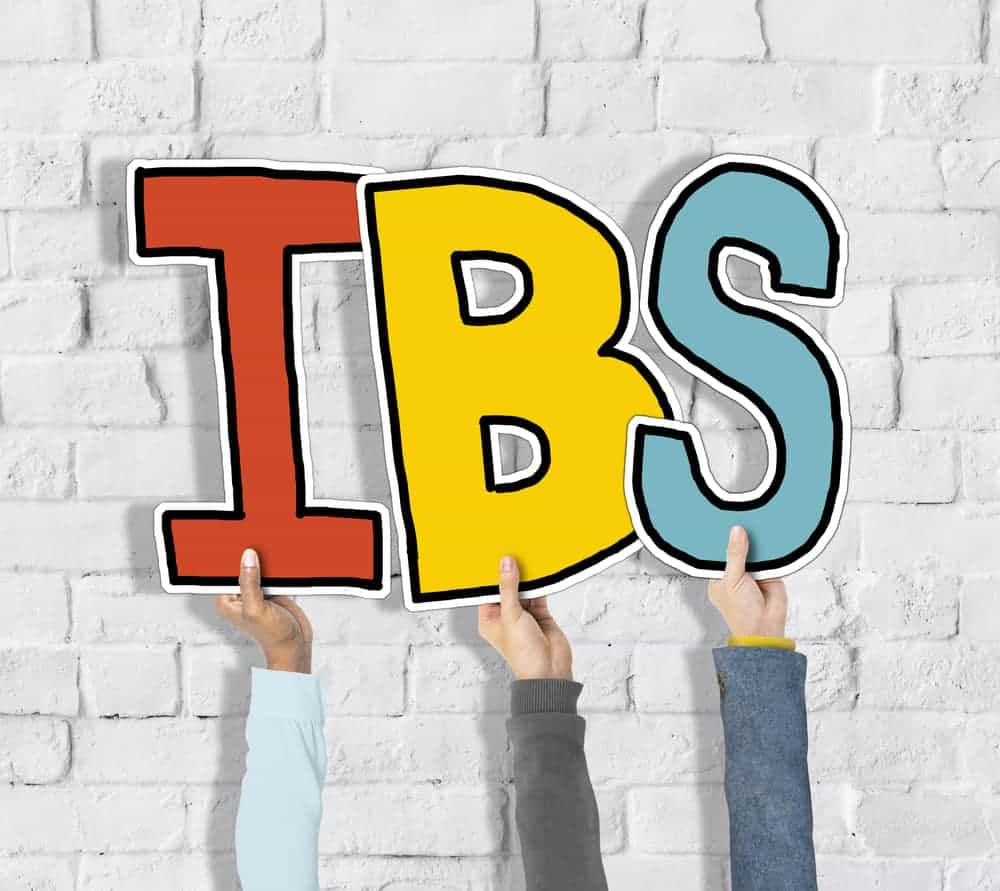Improving digestion and managing irritable bowel syndromes can be difficult. There may not be a cure for IBS, but there are a few ways to deal with its daily challenges.
Posts feature partner companies & may be sponsored. Post contains affiliate links & I will be compensated if you make a purchase after clicking on links. As an Amazon Associate I earn from qualifying purchases.

Table of Contents
Inheriting Stomach Problems? Sad but true…
For as long as I can remember, my father has had stomach problems. He has modified his diet, tried medication, and still spends way too much time in the bathroom. Unfortunately, those stomach issues seem to be genetic and I have been suffering from them for years.
However, when I first started having problems, my father gave me some good advice…deal with them EARLY and they won’t be as severe as you get older. He ignored his for far too long and now managing IBS symptoms has become a major part of his life.

✯Don’t want to miss the next post?✯
Follow Turning the Clock Back on Facebook | Twitter | Pinterest
Or join the private Facebook group for simple tips on going green!
What Is IBS?
Irritable Bowel Syndrome (IBS) is a serious GI issue that affects the large intestine (colon) and commonly causes cramping, abdominal pain, bloating, gas, diarrhea and constipation; there is no cure or known cause for IBS.
This is not a rare condition. Up to 20% of U.S. adults have IBS symptoms. More women than men are diagnosed with IBS but many never seek medical help for it. This leaves a lot of people incredibly frustrated with their ‘sensitive stomach’ problems. I am already noticing that my teenage daughter has inherited my stomach issues.
Like this post about managing IBS? Read these healthy digestion tips, too:
- How to Improve Your Digestion When Eating a Healthy Diet: If you feel like you need some extra digestive health, follow these simple tips.
- Warm Lemon Water Benefits and Side Effects: f you are feeling listless or find yourself with frequent digestive or immune issues, you might want to give lemon water a shot in your daily routine.
- Preventing Norovirus Infection and Other Nasty Stomach Bugs A huge portion of our natural immunity to Norovirus will come from intestinal bacteria so make sure you focus on digestive health!
I am trying hard to educate her on how to prevent them from becoming worse! Not only do children with IBS have to deal with abdominal discomfort and bloating, often times this chronic condition can result in the disruption of social/family activities. Every time she goes to a party or out to eat she seems to come home with a stomach ache!
IBS is thought to affect about 15% of children and teenagers after the age of 5 or 6. The peak period of onset is between the ages of 8 and 14.

Managing IBS: Knowing Your Triggers
There are a lot of things that are difficult for me to do when my stomach is acting up. Travel is ridiculously hard. We plan for frequent bathroom breaks which drive my family a bit nuts but are a necessity for me. Eating out is incredibly frustrating. My mouth wants one thing but my stomach is saying ‘You will regret that!’.
I usually order what my stomach prefers, which means skipping some of my favorite foods. And once dinner is done, I usually head right home…just in case! Managing IBS isn’t always fun but it can be done! I thought I would share a few tips that might help with managing IBS symptoms in your own life. Let me know if you have any others that you have found helpful!

Tips for Managing IBS
Along with following your doctor’s advice, these tips may help you find some relief from the symptoms of IBS:
Know your triggers:
This may require you to create a food diary to keep track of your daily diet and your body’s response:
Eat an IBS friendly diet:
Typically, this means low fat, high soluble fiber, and be careful with insoluble fiber.
- Sources of soluble fiber: oatmeal, lentils, apples, oranges, pears, strawberries, nuts, flax seeds, beans, blueberries, cucumbers, celery, and carrots.
- Sources of insoluble fiber: whole wheat, whole grains, zucchini, celery, broccoli, cabbage, onions, tomatoes, dark leafy vegetables, raisins, grapes, fruit and vegetable skins.
Stick to a firm eating schedule:
Regular meals at the same time every day will help with managing IBS
Do not overeat:
Putting too much food in your stomach at one time is a sure way to end up in the bathroom!
Talk to your doctor about probiotics.
Maintaining the proper digestive flora is key to good digestion. To do this, a probiotic supplement is often necessary.
If you struggle with the symptoms from irritable bowel syndrome, keep in mind that there is no actual cure. However, maintaining good digestive health, reducing stress, and eating a healthy diet are all ways to keep those symptoms under control.
Of course, talk to your doctor about medication or other treatment options if you are still struggling to conquer your digestive problems. Check out the Mayo Clinic for more information on managing IBS symptoms.

Diane is a professional blogger and nationally certified pharmacy technician at Good Pill Pharmacy. She earned her BS in Microbiology at the University of New Hampshire and has worked in cancer research, academics, and biotechnology. Concern over the growing incidence of human disease and the birth of her children led her to begin living a more natural life. She quickly realized that the information she was learning along the way could be beneficial to many others and started blogging and freelance writing to share this knowledge with others. Learn more about her HERE.

I think that a lot of people have this and dont even know that they do. It is great that you are spreading education so that people can get relief from their symptoms!
It is becoming much more of an issue for many people!